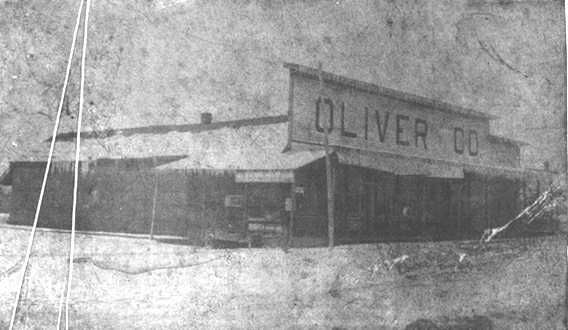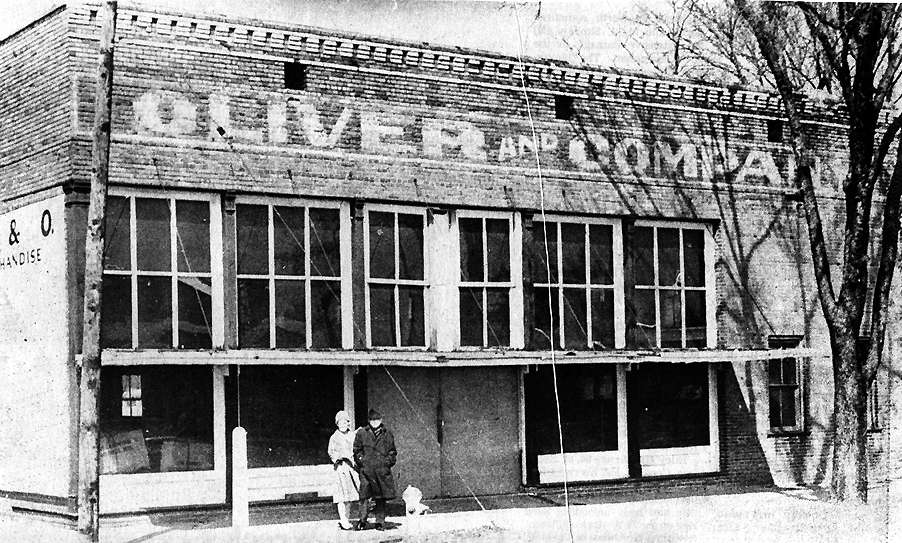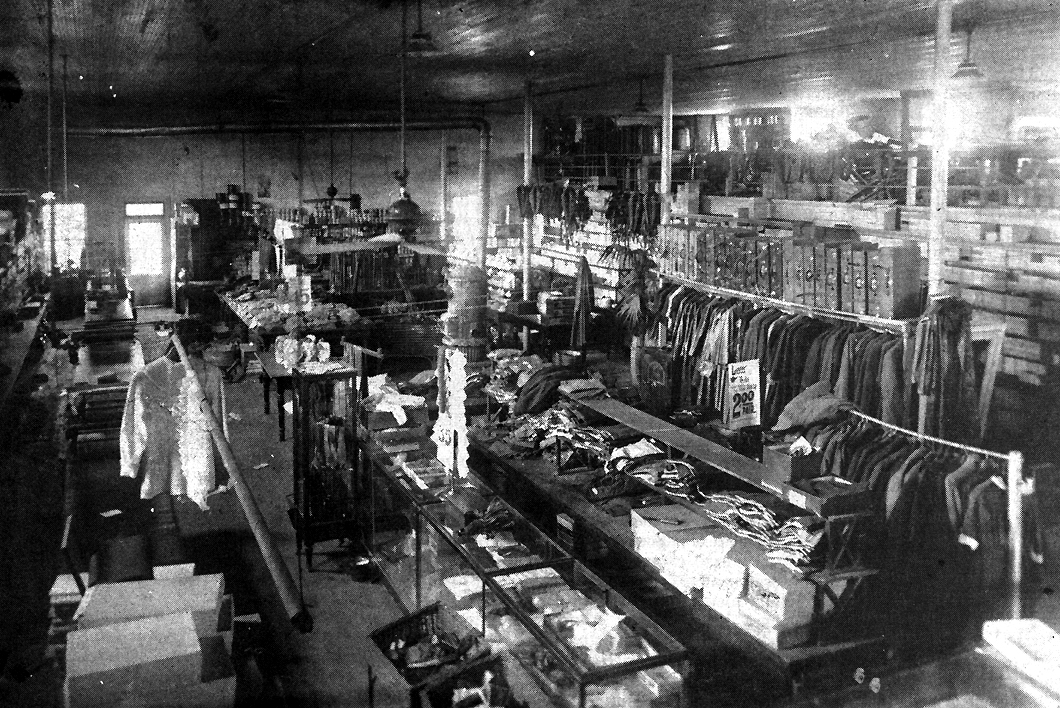
Oliver & Company, Christmas,
Corning, 1900

"A view of Oliver and Company on the snowy Christmas Eve of 1900. The old frame building, covered with layer after layer of black tar paper was no more primitive than the village in which it stood, for Corning was a collection of frame buildings, the majority of which had witnessed the birth of the town in 1873 – or been erected shortly afterwards.
"The Oliver and Company building had been erected as the courthouse of the newly formed County of Clayton on the corner of West First and Main in the first year. Abandoned in 1877 when the county seat was moved to Boydsville, the property had been acquired by M. L. Watts when he returned to Corning in 1884 to establish C. O. Watts and Company. The firm became Oliver and Company in 1891 after Dr. J. M. Oliver married the widow Mrs. Crabtree.
"From a board sidewalk, one stepped onto a plank porch and then into the dimness of the interior. Electric drop cords hung from the ceiling but the carbon lights were not burning. Electricity had just arrived and current was furnished only from dusk until 10 p.m.
"The bulk of Christmas shopping was confined to the last seven days, with half of it done on Christmas Eve."


Inside "The Biggest and the Cheapest"
By J. M. Oliver, Jr.
"The Biggest and Cheapest was such a well known trademark in the era of this picture that it was needless to amplify with Oliver and Co. Even the horses and mules knew that the B. & C. hitchyard was their second home and every semi-frozen farmer and his family knew there would be a red hot stove to warm themselves by as soon as he had hitched his team. The stove, and Oak Cannon 22, had been installed when the firm moved into the new brick building in 1911 and its eight foot height enabled the coldest customer to warm from top to bottom all at the same time. Soft coal as fuel brought on a clogged stovepipe and there were exciting intervals when the sales force lined up the brooms and mop handles to keep the stove doors in place during a blast of gunpowder to remove the obstruction. A rusty stove pipe and an overcharge of powder ripped the stove end to end one unfortunate day and business was halted while the merchandise was cleaned up. Following that, Mr. Letbetter suspended the flue from the ceiling rafter directly overhead and the soot problem was licked. Many a crop was raised around the old stove during its half century in use, many a baby nursed and diapered, and many a yarn spun by some of the windy customers.
"A balcony along the north side was used for hardware and harness items and the wires and stations of the cash carriers can be noted with careful observation. The only such system in Corning, it was a drawing card to the youngsters who marveled at the cars speeding to the front balcony where Mrs. Oliver made change and kept one eye out for customers suspected of having sticky fingers.
"Gas lights had been used so satisfactorily in the old frame store and the 220 direct current lights then in use were so much dimmer, that the gas system was retained an electricity used only for two ceiling fans in summer.
"Following a week of cotton picking, one knew there would be a cotton-picking Saturday, when everyone in the trade area would be in town to spend his cotton picking wages for winter necessities. Oliver and Co. served a midday and supper lunch on their balcony, so their clerks wouldn't have to be off the premises for food, and the writer usually was found waiting on a customer and eating his sandwich at the same time. Mechanical pickers ended an era when any kid able to tote a picksack had his own money to spend and cotton picking Saturdays are no longer on the calendar in October and November. Fall Saturdays aren't the fun they used to be."
Submitted by Danny Moore